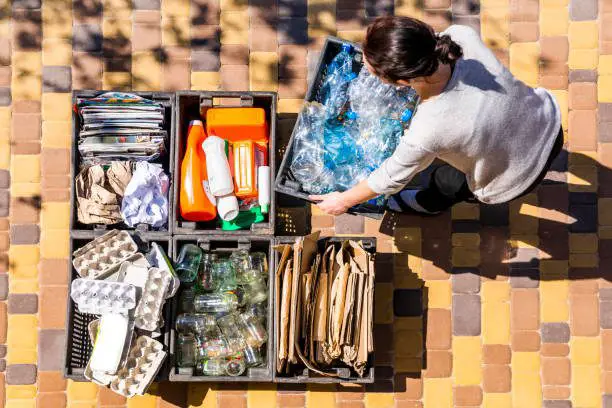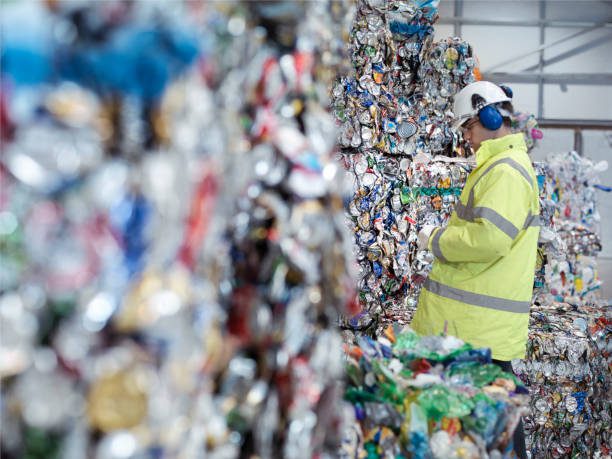Recycling is an easy yet effective way to contribute to a cleaner and more sustainable environment. However, the question often arises: Where can I recycle? Fortunately, recycling options are more accessible, making it easier for everyone to participate in this important green activity.
Here are some steps to help you find recycling locations:
1. Curbside Recycling: Many communities offer curbside recycling programs. Typically, residents receive boxes or containers for recyclables, and the recycling truck picks them up on designated days. Common items to recycle include paper, cardboard, plastic bottles, and glass containers.
2. Local Recycling Centers: Most towns and cities have recycling drop-off facilities. These facilities accept diverse recyclables, inclusive of electronics, aluminum cans, scrap metallic, and unsafe materials like batteries and paint.
3. Retail Store Programs: Retailers like grocery stores provide recycling stations for objects like plastic bag, plastic film, and used batteries. Look for those containers close to the store front.
4. Electronics Recycling: Many electronic stores and manufacturers have take-back programs for old gadgets. These programs ensure that electronic waste is disposed of properly.
5. Hazardous Waste Collection Events: Communities often host hazardous waste collection events where you can safely dispose of items like old chemicals, motor oil, and electronics.
6. Composting: Composting is an efficient way to manage organic waste such as food scraps and yard debris. Composting bins can be set up in your backyard or provided by your local waste management service.
7. Donation Centers: When you consider donating items you no longer need instead of throwing them away, thrift shops, charities, and businesses often accept lightly used clothing, furniture, and household items.
8. Recycling Apps and Websites: Technology makes it smooth to locate recycling locations close to you. Various apps and websites will let you search for close by recycling centers and learn about their widely wide-spread materials.
9. Public Spaces: Parks, colleges, and public homes frequently have waste recycling containers for visitors. Be sure to use them whilst putting off your recyclables whilst at the move.
Establishing recycling systems at home, teaching oneself approximately local recycling hints, and inspiring buddies and family to enroll in the cause are impactful steps toward a greener international.
The question ‘Where can I recycle?’ has many answers. It depends on what you want to recycle and how you want to do it. There are different options, like curbside recycling for easy disposal, specialized waste recycling centers for specific materials, and even fun recycling projects. Each of these ways helps protect our environment in its unique way.
Therefore, the next time you wonder where to recycle, remember that the path to a greener world is as diverse as the items you are seeking to recycle.
Read Also: Old Paper Recycling Process Complete Guide
Proper Recycling Practices and Importance of Waste Recycling

In the quest for a cleaner, more sustainable world, the question ‘Where can I recycle?’ will no longer be just a question but a call to action. Recycling is a powerful tool in our environmental arsenal, reducing waste, conserving resources, and curbing pollution.
As we look deeper into our journey through the avenues of recycling, let’s reflect on the importance of this practice and introduce a few more innovative ideas:
1. Recycle with Purpose: Make recycling a functional part of your lifestyles. Set up recycling stations domestically and educate your own family about what can and can not be recycled. By instilling desirable recycling behavior at home, you make contributions to an extra sustainable future.
2. Upcycling and Repurposing: Take recycling to the next level by means of upcycling and repurposing objects. Get creative with DIY initiatives, turning vintage furnishings into something new, or crafting precise décor from discarded substances.
3. Artistic Recycling: The intersection of recycling and artwork yields wonderful results. Explore your creative side by means of growing sculptures, jewelry, or installations from recycled materials. This no longer handiest transforms trash into treasure however additionally serves as a medium to deliver environmental messages.
4. Recycling at Events: When hosting gatherings or activities, take into account putting in place recycling stations. Encourage attendees to recycle their bottles, cans, and paper products. It’s a small step with a big effect, as it is able to divert massive quantities of waste from landfills.
5. Teaching Sustainability: Pass the torch of sustainability to the subsequent era. Work with schools, youth businesses, or network agencies to organize academic applications on recycling and environmental stewardship.
6. Corporate Recycling Programs: If you work for or own a business, discover the opportunity of imposing or improving recycling packages within the place of work. Encourage personnel to recycle and reduce waste at some stage in every day operations.
7. Recycling Awareness Campaigns: Keep an eye out for nearby and national recycling focus campaigns. These projects often provide assets and statistics on recycling locations and high-quality practices. They can also host events to elevate awareness about recycling’s significance in holding our surroundings.
8. Waste-to-Energy Facilities: In a few regions, waste-to-electricity facilities are a vital part of waste control. These centers use technology to convert non-recyclable waste into strength, reducing the amount of waste destined for landfills. Understanding their function in your region will let you make knowledgeable disposal picks.
Read Also: A Guide To Understand What Can Be Recycled In Waste Management
9. Recycling at Workplaces: If you work or manage a workplace, People might ask about recycling programs at work. Many companies have set up recycling for paper, cardboard, and even electronics. By joining these programs, you can help recycling go beyond your home.
10. Recycling Challenges and Rewards: To encourage recycling on a broader scale, some communities organize recycling challenges and praise packages. Participants compete to recycle the maximum or recycle specific substances, earning incentives like gift playing cards or eco-friendly products.
11. The Circular Economy Approach: Recycling is an imperative part of the round financial system concept, where products and materials are reused, remanufactured, or recycled to limit waste. Understanding the principles of the circular economy can encourage you to assist groups and projects that align with these sustainability dreams.
12. Global E-Waste Initiatives: E-waste is an international problem, and diverse worldwide corporations are operating to address it. Stay informed about global e-waste projects and guide efforts to responsibly manage digital waste, even if you’re now not directly involved within the enterprise.
13. Local Sustainability Partnerships: Many communities shape partnerships with neighborhood companies and businesses to beautify recycling efforts. These partnerships can result in modern answers, such as the usage of recycled substances in production or assisting local artists who create with recycled substances.
14. Recycling in Schools and Universities: Educational establishments play a vital position in shaping the destiny of waste recycling. Schools and universities frequently have complete recycling packages, and students can lead tasks to sell recycling recognition and practices on campus.
15. Public Transportation Sustainability: Public transportation structures are increasingly adopting sustainability measures, including recycling containers on buses and at transit hubs. When the usage of public shipping, search for opportunities to recycle items like newspapers and beverage containers.
By exploring these additional aspects of waste recycling, you will not only increase your understanding but also contribute to a more environmentally aware society. Keep in mind, that every responsible recycling action brings us closer to a world where sustainability is a part of everyday life, and waste becomes valuable resources.
Therefore, the next time you wonder what to recycle, remember that your choices make a difference. Every item you recycle, every new idea you adopt, and everyone you inspire takes us one step closer to a greener, healthier, and more harmonious world.
Waste recycling is not always only on a vacation spot, it is a journey in the direction of a brighter tomorrow, where waste is reduced, resources are conserved, and the environment thrives.
Read Also: 8 Medicinal Health Benefits of Ononis spinosa (Spiny restharrow)

